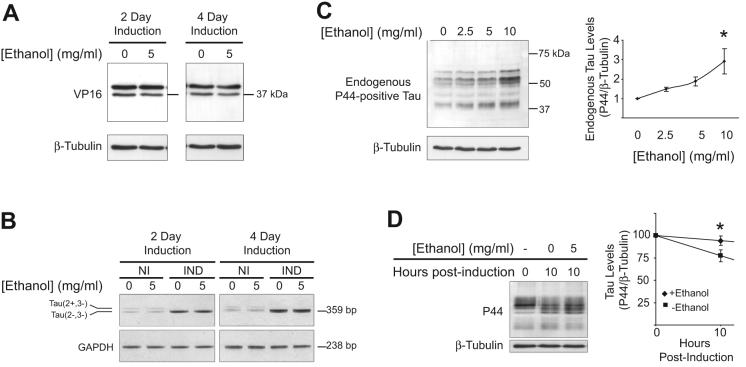Figure 2. Ethanol increases endogenous tau levels.
(A-C) To determine if ethanol increases tau by acting on the TetOff system, the effect of ethanol on the expression of the tetracycline-controlled transactivator (tTa), tau mRNA and endogenous tau protein, were examined. (A) The tTa is a fusion protein of the Tetracycline Repressor and the C-terminal of the Herpes Simplex Virus VP16 activation domain. Exposure of cells to 5 mg/ml ethanol during tau induction did not increase VP16 immunoreactivity. (B) Ethanol did not increase tau mRNA expression. Note that non-induced cells endogenously express low levels of tau isoforms containing or lacking exon 2, resulting in products of 446 bp and 359 bp, respectively. TetOff leads to the induction of 4R0N tau which lacks exon 2. NI= non-induced; IND=induced. (C) Ethanol (2.5-10 mg/ml, 2 d) increased endogenous tau protein levels in BE2-M17D neuroblastoma cells that do not contain the machinery for tau induction. Twenty-five micrograms of protein were loaded per lane and the blot was probed with P44 at a dilution of 1:1000 instead of the usual 1:5000. * P<0.05, as assessed by One-way ANOVA (n=3). (D) To determine if ethanol delays tau clearance, cells were subjected to TetOff induction for 3 days. Induction was then terminated by returning cells to media containing tetracycline (2000 ng/ml) and cycloheximide (30 μg/ml), either in the presence or absence of 5 mg/ml ethanol. Ten hours following the cessation of induction, tau levels were assessed by Western Blot. A significant difference in tau was observed between ethanol-free and ethanol-treated cells (P<0.01 by t-test, n=3).

